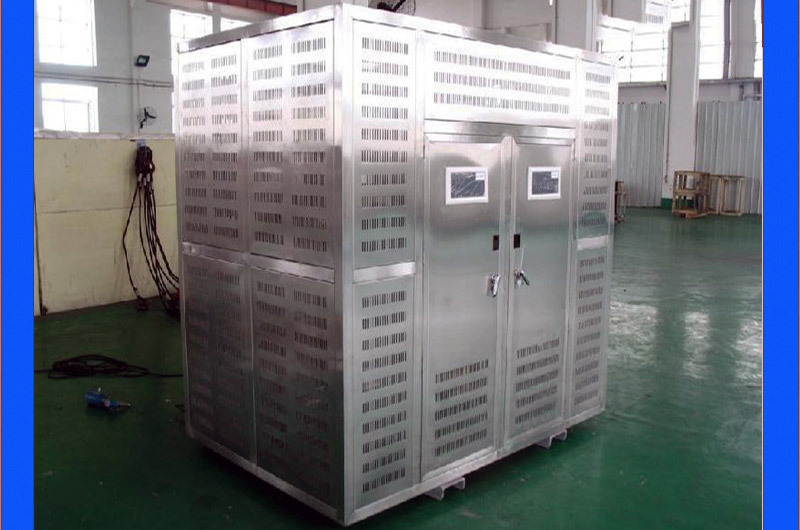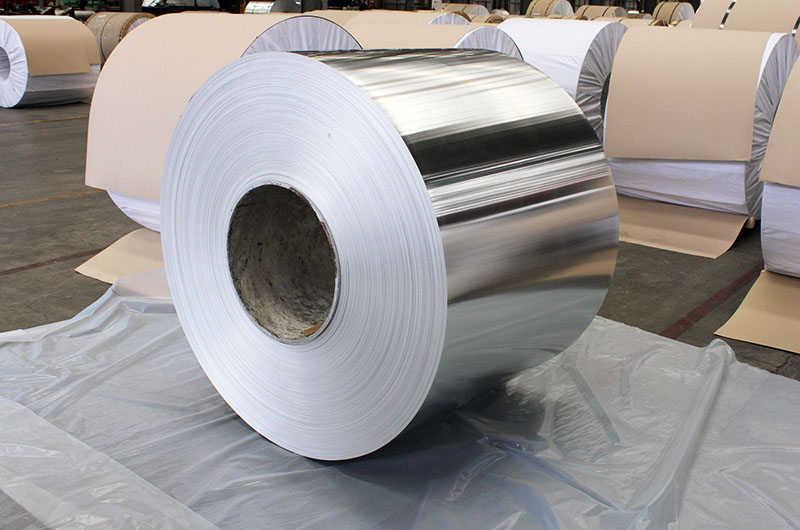The transformer shell refers to the outer protective shell. Since transformers are generally used at very high voltages, it is very dangerous within a few meters of the surrounding area. In order to ensure the safety of the transformer and people passing by, it is necessary to design a safe Protective casing.
There are two main materials for making transformer casings, one is aluminum alloy and the other is stainless steel. Among them, 3003 aluminum coil is mostly used for aluminum alloy.
- Steel shells are cheap, strong, and can be painted in various colors.
- The 3003 aluminum alloy shell has beautiful appearance and good corrosion resistance.
The thermal conductivity of 3003 aluminum coil is better than that of steel, so the heat dissipation performance is better. Moreover, it is a non-magnetic material, which will not generate eddy currents in its structure, causing additional losses and heat generation.

3003 aluminum coil is an aluminum alloy coil commonly used to manufacture transformer casings. 3003 aluminum alloy has good formability, weldability and corrosion resistance, so it is widely used in manufacturing power equipment, especially transformer casings.
Advantages of 3003 aluminum coil as transformer casing
- Lightweight: Aluminum is a lightweight metal. Using 3003 aluminum coils can reduce the weight of the entire transformer, making the equipment easier to handle, install and maintain.
- Good formability: 3003 aluminum alloy has good formability and is easy to process into various shapes and sizes, making the production process more flexible.
- Thermal conductivity: Aluminum has good thermal conductivity, which helps dissipate heat and ensure that the transformer maintains a proper temperature when operating.
- Corrosion resistance: 3003 aluminum coil has good resistance to corrosion under most atmospheric conditions, extending the service life of the transformer casing.
- Good weldability: Aluminum alloy is easy to weld, making the assembly of the transformer housing more convenient while ensuring the firmness of the connection.
- Beautiful appearance: Aluminum has good surface treatment properties and can be subjected to various surface treatments, giving the transformer housing a good appearance.

Specifications of 3003 aluminum coil for transformer casing
The specifications of 3003 aluminum coils used as transformer housings will vary based on specific application requirements and manufacturing standards. Here are some possible specification ranges, but please note that these are only for general reference:
- Thickness: Usually between 0.2mm and 4mm, the specific thickness depends on the power and size of the transformer. Less powerful transformers may require a thinner housing, while higher power transformers may require a thicker housing to provide adequate structural strength.
- Width: Depending on the size and design of the transformer, the width can range from 100mm to 1500mm. The choice of width will also be affected by production processes and costs.
- Coil Length: Coiled materials are usually supplied in the form of rolls. The roll length can be customized according to production needs, generally ranging from tens to hundreds of meters.
- Alloy state: 3003 aluminum coils may be in different alloy states, such as H14, H16, H18, etc. These states represent different degrees of cold working and heat treatment, which affect the hardness and other properties of the material.
- Surface treatment: Depending on appearance and anti-corrosion requirements, different surface treatments can be selected, such as coating, anodizing, etc.
The 3003 aluminum coil used for Haomei Aluminum transformer casing can be reasonably customized according to user needs. The thickness is 0.2-8mm and the width is 100-2650mm. It has complete specifications and excellent performance, and can better meet the various needs of users.
Haomei Aluminum is a professional aluminum plate, strip and foil manufacturer. The 3003 aluminum coil technology is relatively mature and has excellent performance. It is sold directly by the manufacturer and the price is relatively advantageous. Friends in need are welcome to come for on-site inspection and visit. For more product information and preferential quotations, you can consult at any time.
In a practical application, the best choice will be customized to the specific requirements of the transformer, environmental conditions and manufacturing standards. Manufacturers often provide customized specifications and materials based on customer needs.

